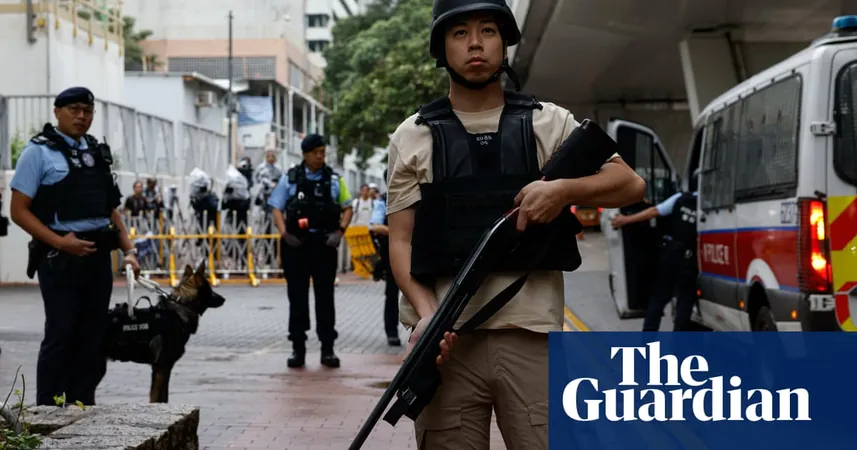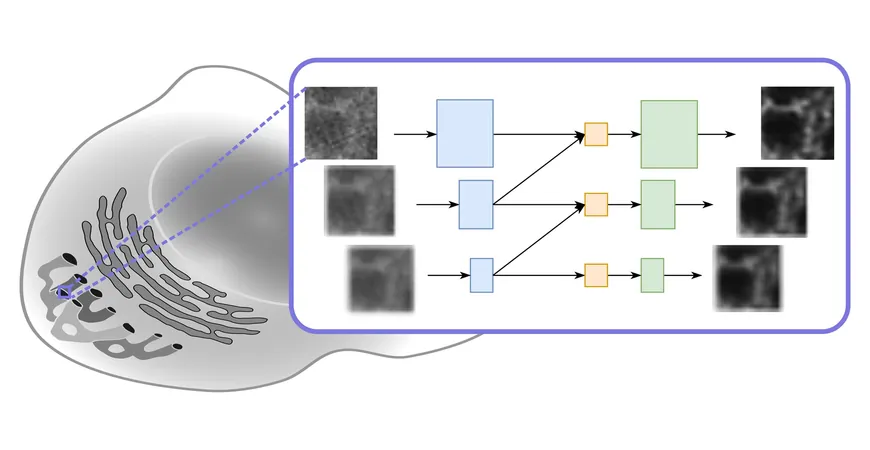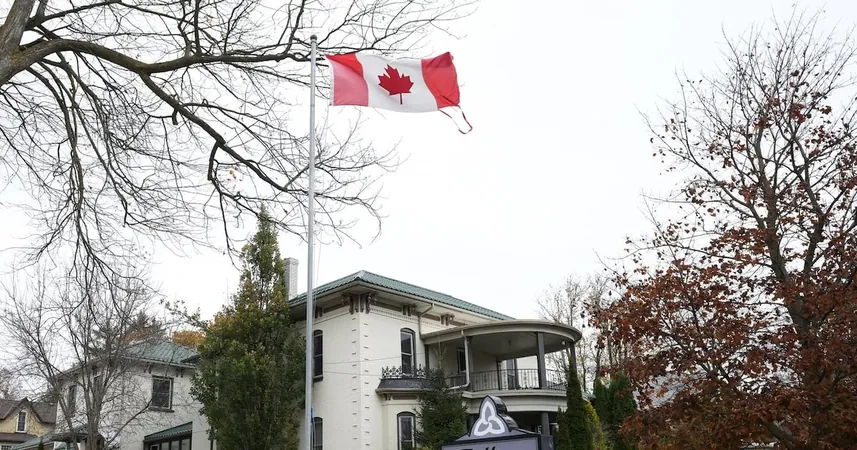
Global Fury Erupts Over the Harsh Sentences of 45 Hong Kong Pro-Democracy Activists
2024-11-19
Author: Michael
Global Outrage Over Sentencing
Governments and human rights organizations around the world have reacted with mounting outrage over the recent sentencing of 45 pro-democracy activists in Hong Kong, following the city’s largest national security trial. The sentences, which range from over four years to a staggering 10 years, were handed down on Tuesday and have ignited international condemnation.
Background on Arrests and Charges
These activists were arrested in 2021 under Hong Kong’s controversial national security law (NSL). Their alleged crime? Participation in an unofficial primary election held in July 2020, which saw more than 600,000 citizens cast their votes—an event that took place only weeks after the NSL was imposed by Beijing as a response to widespread protests advocating for democratic reform.
US Condemnation and Notable Sentences
A spokesperson from the US consulate in Hong Kong expressed strong condemnation of the sentences, stating that these individuals were "aggressively prosecuted and jailed for peacefully participating in normal political activity." Among those sentenced was Benny Tai, a legal scholar and activist, who received the heaviest sentence of 10 years for his role as an organizer of the primaries. Accused of masterminding a strategy for the pro-democracy camp to capture a legislative majority, Tai's sentencing highlights the severity of Hong Kong's current political landscape.
Notable figures like Joshua Wong, the student leader known globally for his role in the 2014 Umbrella Movement, received a sentence of four years and eight months. Wong, who reportedly shouted "I love Hong Kong" as he left the courtroom, was penalized in part due to previous convictions linked to past protests. His leniency illustrates a troubling trend: defendants who plead guilty often receive lesser sentences compared to those who maintain their innocence.
Criticism of the Trial Process
The trial, devoid of a jury and overseen by judges handpicked by the government, has drawn widespread critique. Human Rights Watch's Maya Wang stated that these sentences signify a drastic decline in civil liberties and judicial independence in Hong Kong, a sentiment echoed by Chris Patten, the last British governor of Hong Kong, who labeled the proceedings a "sham."
International Response
Catherine West, the UK’s minister for the Indo-Pacific, described the sentencing as a blatant use of the NSL to suppress political dissent. "Those sentenced today were exercising their right to freedom of speech, assembly, and political participation," she stated.
The trial showcased the punitive nature of the NSL, which has been criticized for eroding the rule of law in the region. New Zealand’s foreign minister expressed dismay at the convictions, echoing sentiments that the sentences represent a coordinated effort by the Hong Kong authorities to silence opposition.
There were further international ramifications as Australia voiced its deep concern regarding the sentencing of Gordon Ng, a dual-national participant in the trial, who was given over seven years. Meanwhile, prominent British lawyer Jonathan Sumption, who resigned from Hong Kong's judiciary in protest, remarked that the outrage should be directed at their initial convictions rather than their sentences.
Legal Outcomes and Perspectives
Of the original 47 defendants, 31 pleaded guilty, while two were acquitted, highlighting a divide in how the law is applied to different individuals based on their legal strategies. Notably, former journalist Gwyneth Ho was sentenced to seven years in prison after pleading not guilty. Following her sentencing, Ho stated that she had been prosecuted merely for participating in what she called "the last free and fair election in Hong Kong."
China's Response and Future Outlook
In response to the growing international backlash, the Chinese foreign ministry dismissed these criticisms as attempts to undermine Hong Kong’s legal framework and insisted that national security must be maintained.
As the world watches, the Hong Kong pro-democracy movement faces an uncertain future, with its key figures now imprisoned and the public’s democratic aspirations increasingly stifled. The stark condition of civil rights in the city poses a significant challenge, not just for its residents but for the global community that champions human rights and political freedoms. As calls for action resonate worldwide, many are left wondering: is there still hope for democracy in Hong Kong?









 Brasil (PT)
Brasil (PT)
 Canada (EN)
Canada (EN)
 Chile (ES)
Chile (ES)
 España (ES)
España (ES)
 France (FR)
France (FR)
 Hong Kong (EN)
Hong Kong (EN)
 Italia (IT)
Italia (IT)
 日本 (JA)
日本 (JA)
 Magyarország (HU)
Magyarország (HU)
 Norge (NO)
Norge (NO)
 Polska (PL)
Polska (PL)
 Schweiz (DE)
Schweiz (DE)
 Singapore (EN)
Singapore (EN)
 Sverige (SV)
Sverige (SV)
 Suomi (FI)
Suomi (FI)
 Türkiye (TR)
Türkiye (TR)